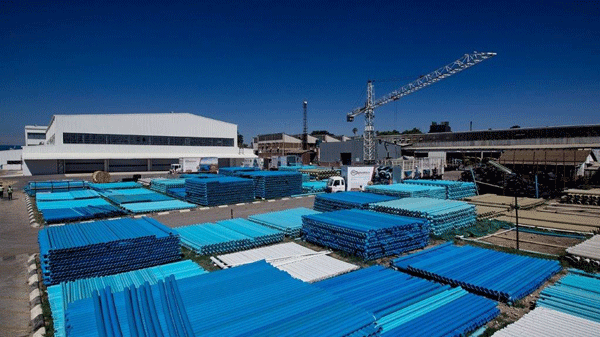Government crafts lithium policy
GOVERNMENT has moved a step further to ensure the country derives maximum benefits
from vast lithium deposits by crafting a policy that directs operations of the sector.
Cabinet on Wednesday announced the approval of a Lithium Ore Policy that would among
other measures require any individual and or entity wishing to process lithium ores to
construct an Approved Processing Plant locally.
The policy feeds into the mineral beneficiation and value addition thrust as the country
seeks to achieve a US$12 billion mining economy by year-end.
Minister of Mines and Mining Development Winston Chitando on Wednesday presented
an update on the proposed initiatives to unlock value in the mining sector that include
responsible Mining Initiative, Diamonds and Related Matters and Lithium Ore Policy.
Briefing the press during a post-Cabinet meeting on Wednesday, Information, Publicity
and Broadcasting Services Minister Monica Mutsvangwa said Cabinet approved the
Lithium Ore Policy and a Statutory Instrument will be issued on Lithium based on several
principles.
“Any individual or entity owing a lithium concession can mine lithium ores for either
processing at its own Approved Processing Plant (APP), or for sale to those with
Approved Processing Plants locally.
“Any individual and or entity wishing to process lithium ores will be required to
construct an Approved Processing Plant locally, ore movement permits for lithium ores
will only be issued where such ores are destined for a local Approved Processing Plant,
lithium ores can only be stored at the mining site where such ores were mined, or at an
approved local Approved Processing Plant.”
She added “Any entity will require a Lithium Ore Purchase Licence to buy ores from
miners. A local Approved Processing Plant will be a condition for obtaining getting the
Lithium Ore Purchase Licence.”
According to the policy, all players in the lithium sector, whether miners or holders of
Approved Processing Plant, shall submit a summary of monthly reconciliations of ore
movements to the Ministry of Mines and Mining Development.
Added to that for any material to qualify as a concentrate for approval for export, it shall
meet the minimum set technical specifications and the minimum selling price as set by
the Minerals Marketing Corporation of Zimbabwe on a regular basis.
Early this year, the Government enacted additional regulations aimed at curbing the
rampant exportation of various high-value minerals in raw form, buttressing calls for
enhanced domestic value-addition in the mining sector.
A new Statutory Instrument on base minerals export control (Unbeneficiated Base
Mineral Ore) order 2023 outlines the new measures being enforced.
The Statutory Instrument (SI) was issued by the Ministry of Mines and Mining
Development and defines unbeneficiated base mineral ore as any ore of whatever base
mineral that has not undergone processing within Zimbabwe to any extent.
Statutory Instrument 5 of 2023 states that no un-beneficiated base mineral ores shall be
exported from Zimbabwe to another country except under written permit of the minister.
Minister Winston Chitando
Lithium is fast gaining popularity across the world as a critical mineral in the
manufacturing of batteries mainly for electric cars, whose demand is rising especially in
developed countries.
Due to the emerging electric motor vehicle industry, there is increased international
demand for the lithium mineral known as “white oil”, which is used for manufacturing
batteries.
Zimbabwe has probably the largest lithium reserves in Africa and the fifth-largest
worldwide. Scaling up domestic value addition and beneficiation is at the heart of the
Government’s strategy to grow mining sector earnings to US$12 billion by end of this
year.
Already the country is attracting foreign direct investment into lithium exploration and
mining with projects such as the Arcadia project near Harare, the Zulu Lithium project in
Insiza District, Matabeleland South, and Kamativi in Hwange District underway.
The mining industry is one of Zimbabwe’s economic mainstays with the sector
contributing about 70 percent of the country’s foreign currency earnings.
The main minerals expected to lead growth of the mining sector include gold, platinum
group metals (PGMs), chrome and ferrochrome, nickel, diamonds, lithium, coal and
hydrocarbons.
The gold sector holds the bulk of the value in terms of the US$12 billion target as it is
expected to earn US$4 billion representing one third of the total value.
Platinum group metals (PGMs) follow behind at US$3 billion, chrome, iron and steel at
US$1 billion, diamonds US$1 billion, coal US$1 billion, lithium US$500 million and other
minerals US$1,5 billion.-chronicle










